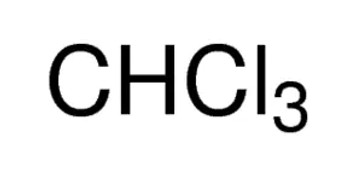Description
Acetone, 1L, for liquid chromatography LiChrosolv®
Synonym(s):
Dimethyl ketone, Propanone, 2-Propanone
Linear Formula:
CH3COCH3
CAS Number:
67-64-1
Molecular Weight:
58.08
Beilstein:
635680
MDL number:
MFCD00008765
EC Index Number:
200-662-2
Quality Level
100
vapor density
2 (vs air)
vapor pressure
184 mmHg ( 20 °C)
product line
LiChrosolv®
grade
isocratic
assay
≥99.8% (GC)
form
liquid
autoignition temp.
465 °C (DIN 51794)
potency
5800 mg/kg LD50, oral (Rat)
20000 mg/kg LD50, skin (Rabbit)
expl. lim.
13.2 %
technique(s)
HPLC: suitable
impurities
≤0.0002 meq/g Acidity
≤0.0002 meq/g Alkalinity
≤0.05% Water
evapn. residue
≤2.0 mg/L
transmittance
335 nm, ≥50%
340 nm, ≥80%
350 nm, ≥98%
refractive index
n20/D 1.359 (lit.)
pH
5-6 (20 °C, 395 g/L in H2O)
capacity
1000 g/kg water absorbing capacity
bp
56 °C/760 mmHg (lit.)
mp
−94 °C (lit.)
transition temp
flash point <-20 °C
density
0.791 g/mL at 25 °C (lit.)
storage temp.
2-30°C
SMILES string
CC(C)=O
InChI
1S/C3H6O/c1-3(2)4/h1-2H3
InChI key
CSCPPACGZOOCGX-UHFFFAOYSA-N
LiChrosolv® solvents show high degree of UV transmittance, low particle count, low acidity and alkalinity and low evaporation residue level. This makes them ideal for reproducible separations.
Application
Intended for HPLC and UHPLC-MS applications, either as an extraction solvent or as a mobile phase.
Reported for use in LC–MS/MS investigations of:
Reported for use in LC–MS/MS investigations of:
- blood plasma and serum samples fractionated on several chromatography sorbents
- peptides in animal biological samples
Acetone′s luminesence intensity is dependent upon the solution components . The absorption of UV light by acetone, results in its photolysis and the production of radials .
Features and Benefits
- suitability tested and specified for UHPLC-MS and UHPLC-UV: for analytical flexibility
- specified quality in positive and negative in positive and negative electrospray ionization (ESI) and atmospheric-pressure chemical ionization-mass spectrometry (APCI-MS) for lowest detection limits and confidence in analyses for all important MS modes (test 1)
—ESI/APCI (-) < 10 ppb
- lowest impurity profile: for interference-free baselines (test 2)
- microfiltered through 0.2 μm filter (test 3) to provide:
—reduced risk of column clogging
- packed in borosilicate glass bottles for minimized metal ion contaminations
- lowest levels of trace metal impurities for a minimum metal ion adduct formation
- lowest level of polyethylene glycol (PEG) impurities in UHPLC-MS solvent lineup (PEG S/N signal-to-noise-ratio < 50)
Preparation Note
Product filtered through a 0.2 μm filter
Legal Information
LICHROSOLV is a registered trademark of Merck KGaA, Darmstadt, Germany
SAFETY INFORMATION
Pictograms
GHS02,GHS07
Signal Word
Danger
Hazard Statements
H225 - H319 - H336
Precautionary Statements
P210 - P233 - P240 - P241 - P242 - P305 + P351 + P338
Hazard Classifications
Eye Irrit. 2 - Flam. Liq. 2 - STOT SE 3
Target Organs
Central nervous system
Supplementary Hazards
EUH066
Storage Class Code
3 - Flammable liquids
WGK
WGK 1
Flash Point(F)
1.4 °F - closed cup
Flash Point(C)
-17.0 °C - closed cup












